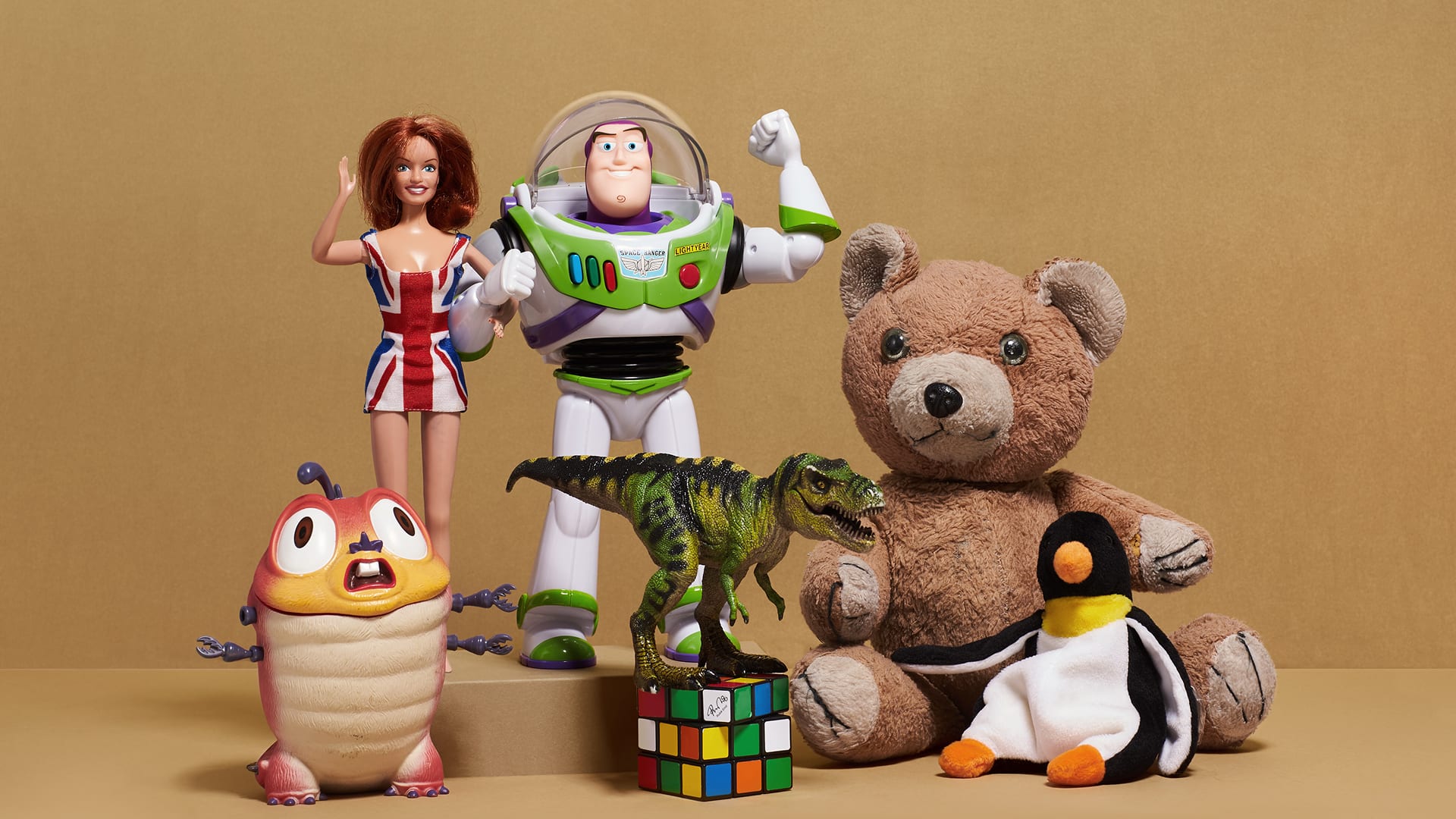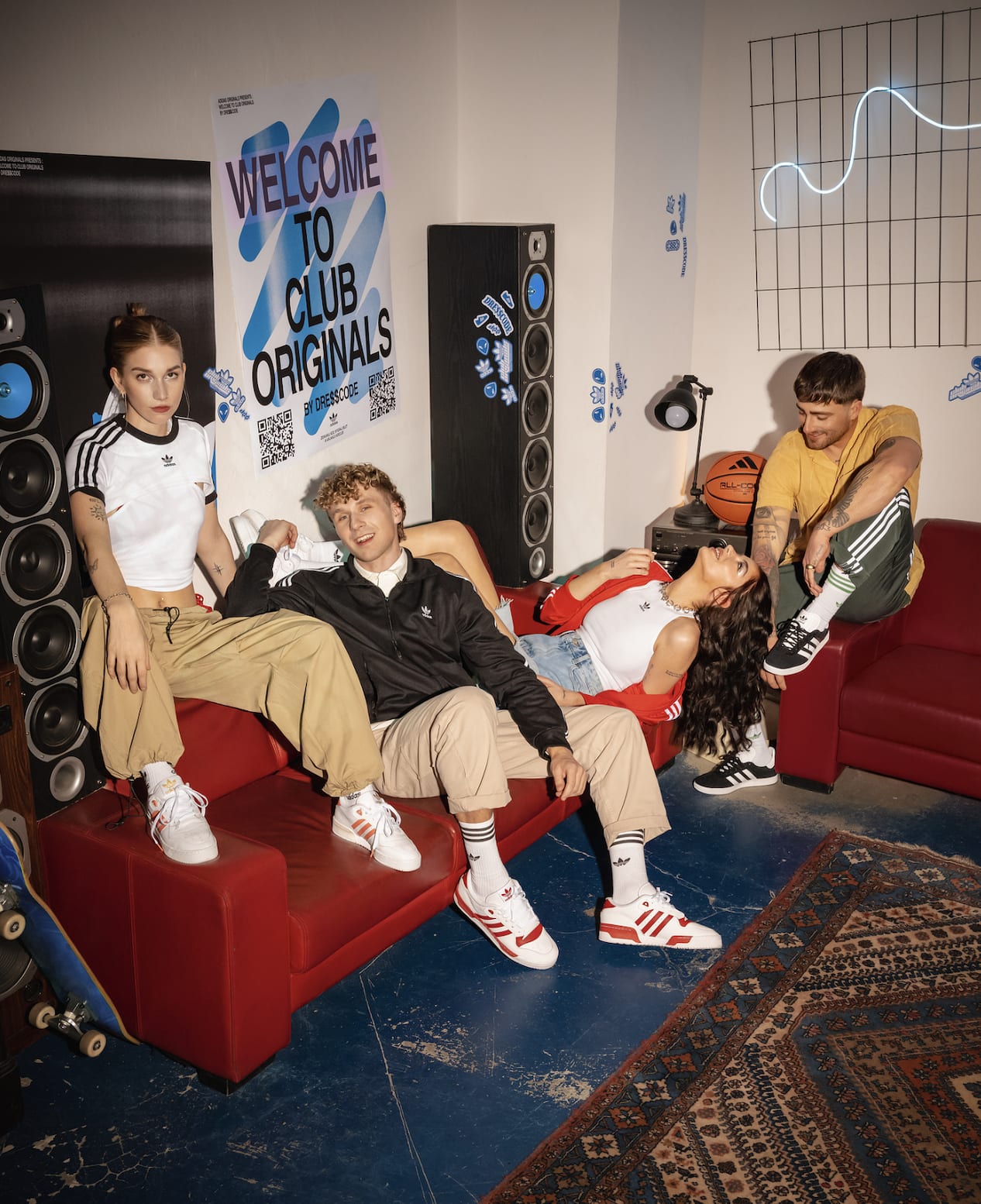TOOxTOO
Issue #106
Megan Hotson
08/04/22
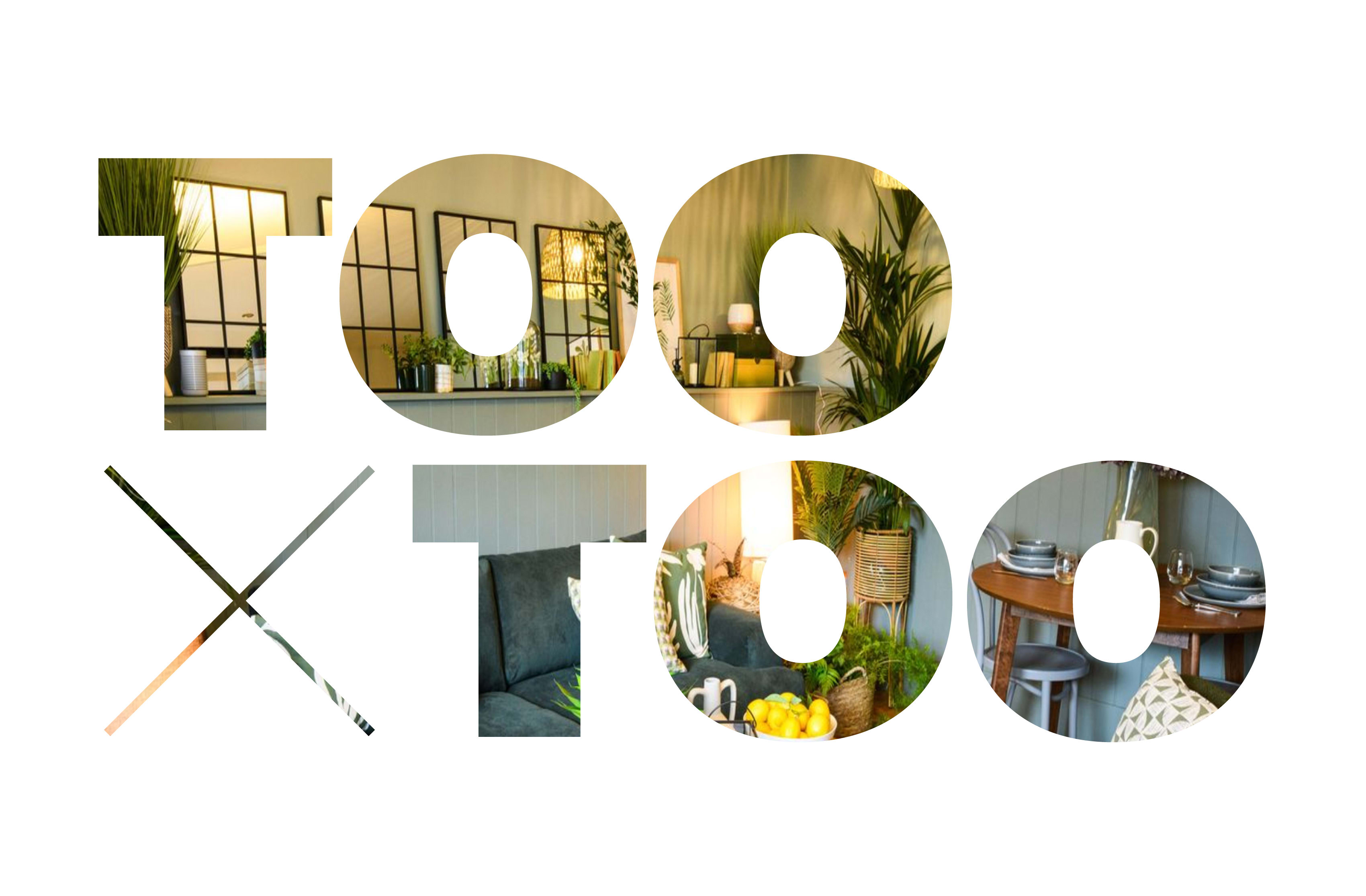
Welcome to your weekly dose of TooXToo, this week featuring Tesco’s hot crossed bun café, Heineken’s metaverse bar, Tesco’s billboard’s celebrating Ramadan, and the Argos and Pinterest ‘Mood hotel’…
Tesco’s hot cross bun café
Easter is not Easter without the sweet addition of hot cross buns. Supermarkets capitalise on the nations love for this Easter treat by developing new twists or flavours to entice its customers. Tesco have taken it a step further this year by opening – albeit temporarily, a hot cross bun café.
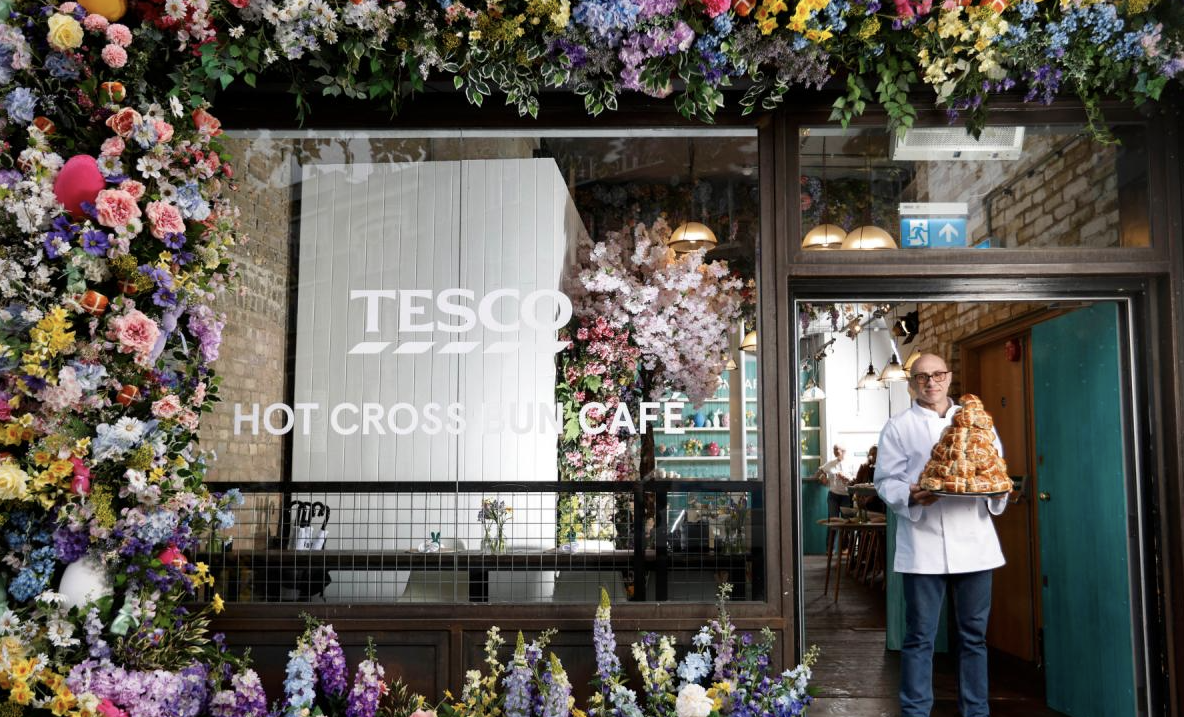
The café is situated in London’s Shoreditch, and offers a unique kind of dining experience. Expect brunch, afternoon teas and a refined five-course meal served each evening. Each item on the menu includes or is inspired by the beloved hot crossed bun. From vegan ‘Hot Cross Bangers and Smash’ at brunch, to Hot Cross Scones at afternoon tea, and Hot Cross Bun Espresso Martinis and Hot Cross Bun Steak Tartare at dinner.
Tesco’s decision to open their easter-inspired café concept came in response to their reported 20% surge in sales for hot cross buns in 2021. Given this increase, the supermarket’s new eatery that celebrates this Easter staple is set to soar.
This fun, and unique pop-up is not just responding to the seasonality of consumer behaviour, but is tapping into the natural inquisitiveness of customers that will be enticed by new, or re-imagined everyday consumer goods.
The new café in Shoreditch will only be open from April 5th to April 10th; don’t panic though – if you miss its debut you can pop into any Tesco in-store cafe across the UK to experience some of the dishes from the London café.
Heineken’s metaverse bar
Heineken opened a bar free from alcohol in the spirit of embracing the virtual, meta-inspired future to come. Those in search of a pint, or two do not fear- the bar next door was open to satisfy the physical experience of enjoying a drink that the meta-bar pulled away from.
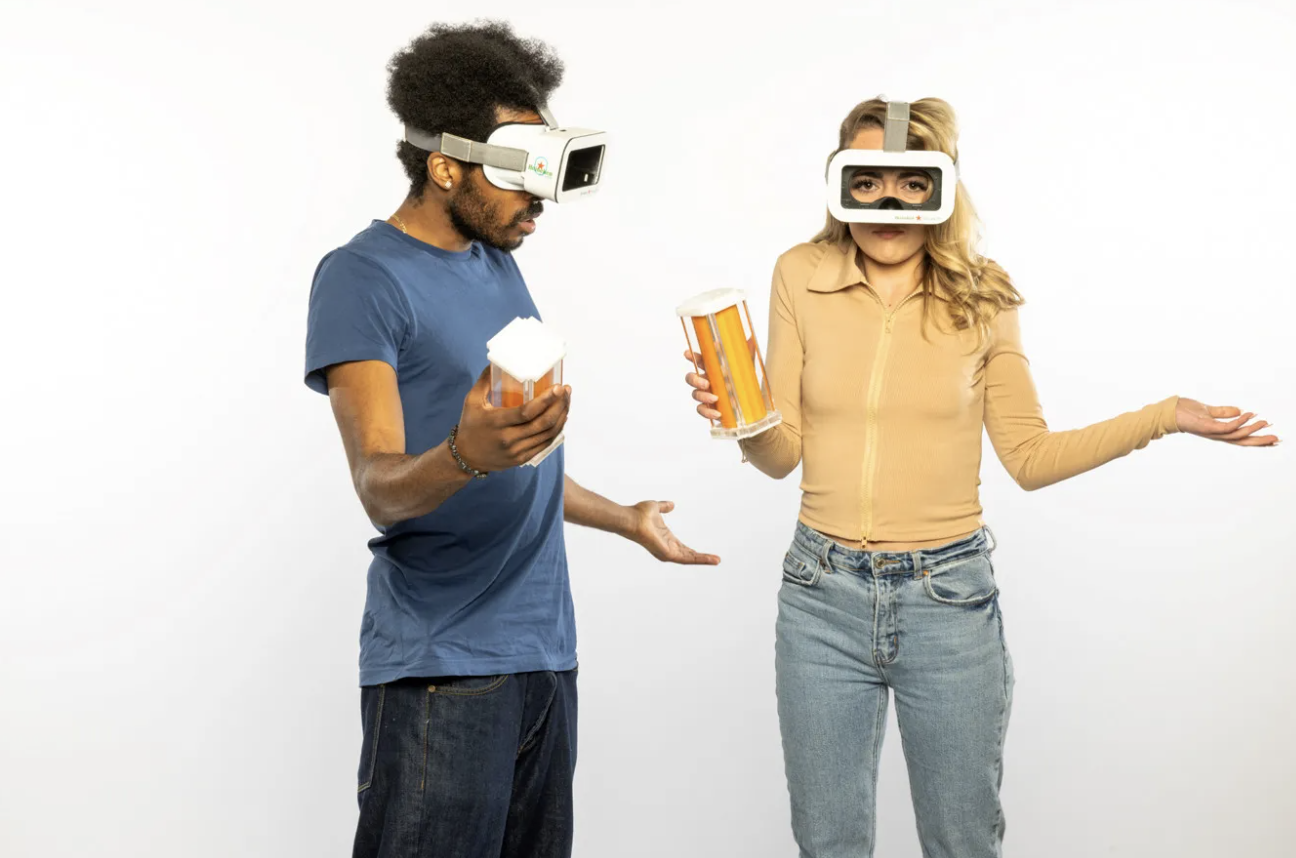
Heineken opened a pop-up bar that was open for one night on the 7th April, which celebrated the launch of Heineken Silver, their new premium 4% lager. Crucially – this product is all about “challenging fakeness” and “poking fun at the current craze to launch products in the metaverse”. Given this, Heineken have made a playful move in opening the world’s first “IRL” metaverse bar, that served “digital beers that can’t be drunk”.
The new product ‘Heineken Silver’ was ‘brewed’ virtually first in the 3D platform Decentraland, this was done by the brand to satirise the visible shift of other big brand’s activity to the meta-verse. As Heineken associates commented, brands “are jumping into the metaverse with products that are best enjoyed in the real world.”
The pop-up was characterised by a blocky, pixelated interior, and featured staff who acted like non-playable characters (NPCs). Visitors were given low-tech ‘virtual reality’ headsets to wear when inside the bar and acted to give customers an insight into the future of the ‘meta-hospitality’ landscape.
Those who turned up disappointed to find a lack of alcohol inside the IRL metaverse experience were able to have their thirst quenched nextdoor where Heineken Silver was sold on tap, all-night long.
Not only did this brand pop-up create controversy that got people talking both on and offline, but it also acted to successfully market and promote Heineken’s newest product.
The question this pop-up posed for consumers and the brand was whether the future meta-consumer will trade a physical drink for one that is undrinkable for the sake of a unique, fully virtual experience…
Tesco’s billboards that celebrate Ramadan
Tesco are celebrating Ramadan with their month-long billboard campaign which is inspired by generating content that aligns with when Muslims can and cannot eat during the day.
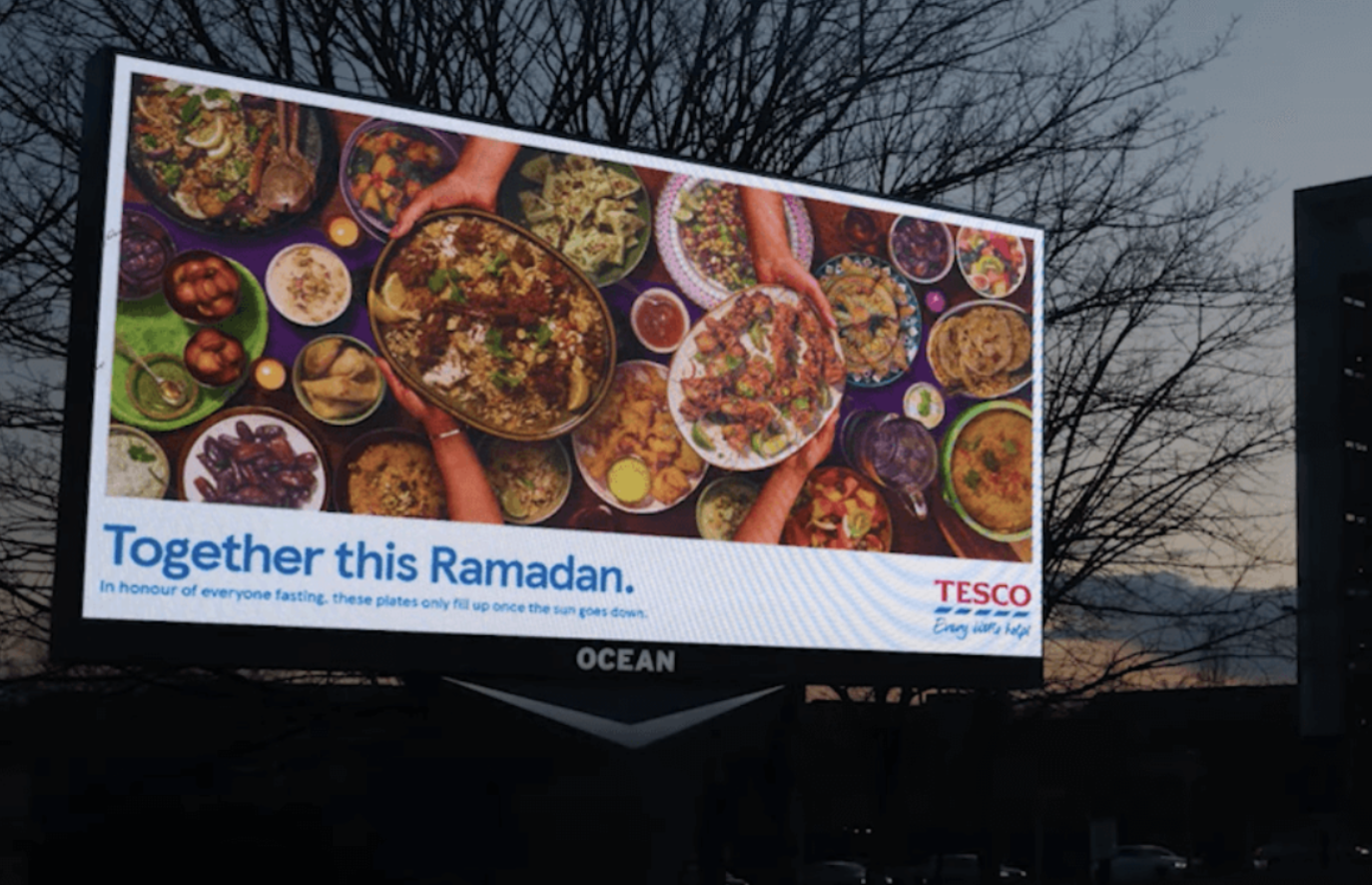
Muslims refrain from eating and drinking between dawn and dusk — tapping into the cultural norms that define the Ramadan period Tesco is celebrating the sense of community and togetherness to be found in collectively fasting and sharing a meal together across this period.
During the day, the billboards will share pictures of four hands alongside several empty plates and platters. Food then appears on the plates displayed when the sun sets signalling when Muslims can break their fast with an iftar meal.
The billboards displaying these ads will be in main areas with large Muslim communities, including London, Birmingham and Bradford. To enhance the day-to-night digital transition, the billboards all face eastwards, with the sun setting in the background.
Inclusivity is something brands need to prioritise increasingly in response to growing consumer awareness and consciousness; customers are keen to invest in brands that communicate authenticity and cultural awareness, and this latest billboard campaign is a great example of this.
In the UK the Muslim community is very diverse, encompassing a wide range of cultural backgrounds. Tesco has creatively responded to the question of how to appeal and resonate with such a diverse group. Crucial, was Tesco’s decision to exclude images of specific people because it allows the campaign to appeal to everyone who practices Islam.
The Argos and Pinterest hotel
Argos and Pinterest embarked on a creative partnership bringing ‘The Argos Mood’ hotel to London’s Bethnal Green between April the 2nd and April the 4th. The idea was that the rooms within successfully provided the public with an insight into the upcoming interior trends for 2022.
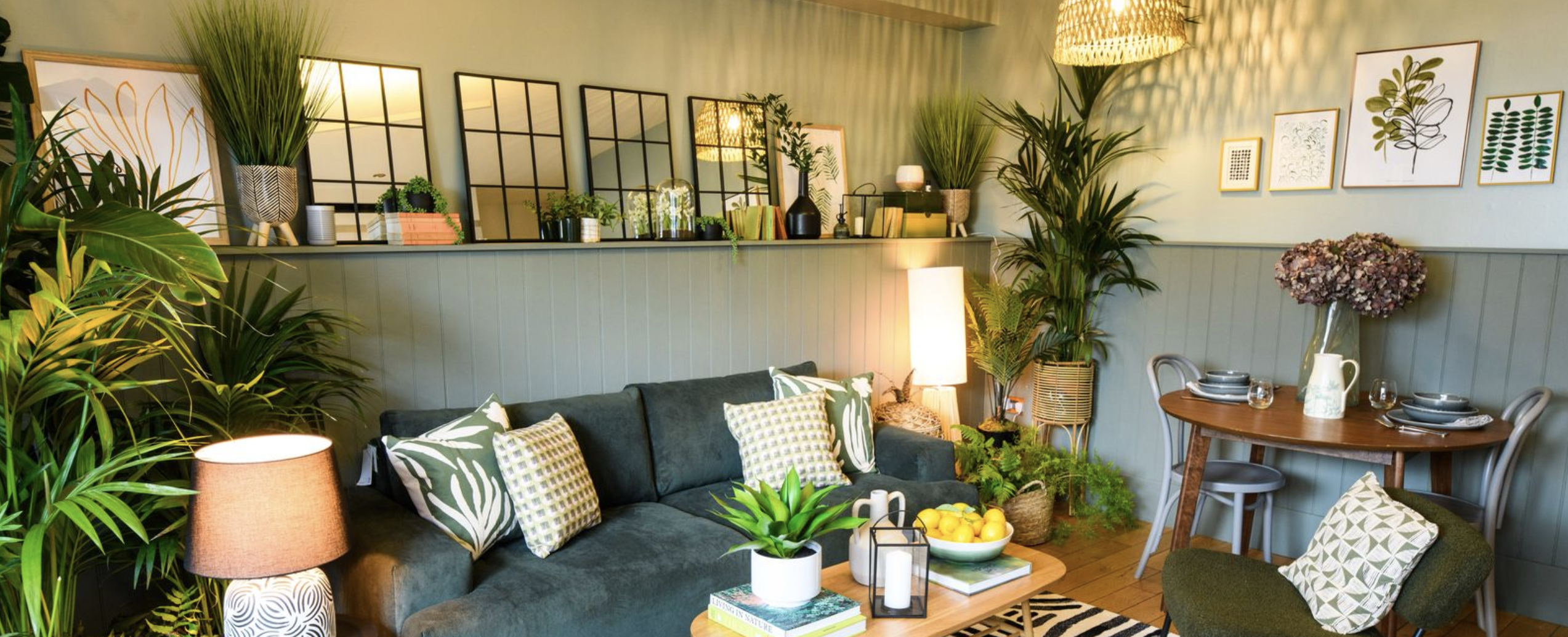
The data was provided and gathered by Pinterest Predicts and informed the Argos design team who then developed six beautifully decorated rooms in the hotel in this world-first concept.
Rooms in the hotel included ‘The Luxe room’ which prioritised opulence and extravagance as well as the ‘Escape Room’, which was inspired by modern minimalism and wellness spaces. Customers that were enticed by the interior design of these spaces were directed to buy through the hotel or via Argos’ website – the collaboration proved successful in giving consumers a whole new way of looking at design, and was especially appealing for those wanting to be able to have a physical brand experience after being digitally immersed for the last two years during the pandemic.
For those of us that missed this experience, it can be explored virtually through immersive 360° videos and e-visitors can also browse shoppable digital pages on the Pinterest platform and across Argos’ social media channels.
